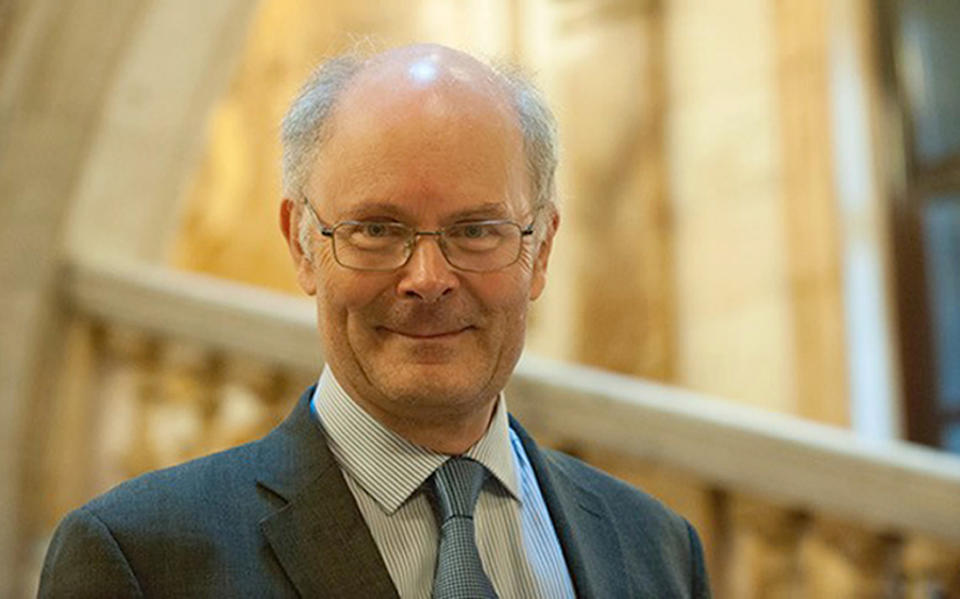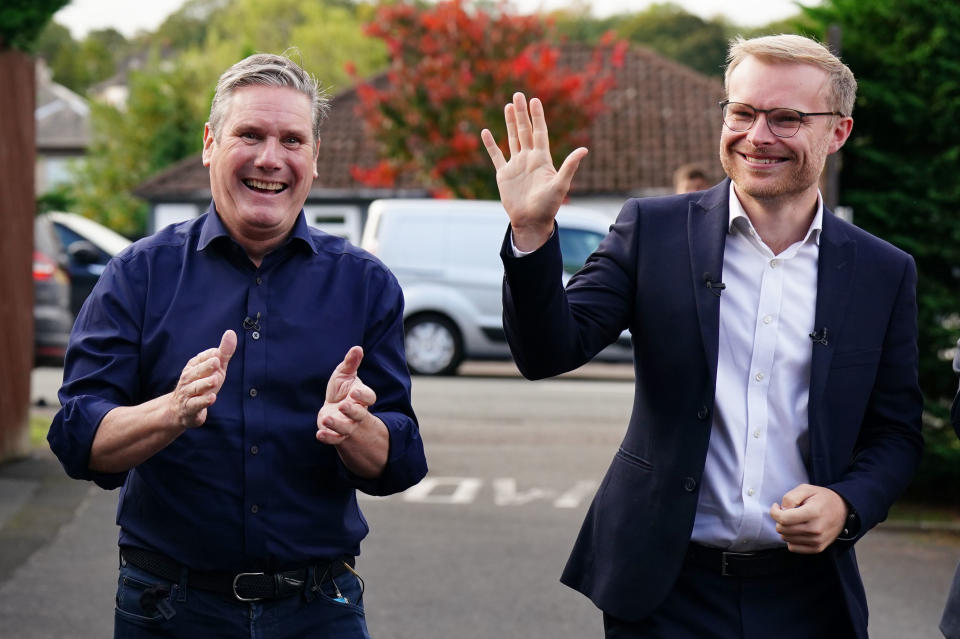Yousaf ‘nothing like as popular’ as Sturgeon and SNP support down, says expert
First Minister Humza Yousaf is “nothing like as popular” with voters as his predecessor Nicola Sturgeon was and some independence supporters are now switching from the SNP to Labour, elections expert Professor Sir John Curtice has said.
Sir John said Ms Sturgeon’s “fateful decision” in February 2023 to step down as SNP leader and first minister has had “quite substantial political consequences” for her party.
Mr Yousaf replaced her in both roles, but Sir John said the leadership contest which saw him elected exposed divisions within the party, with the public “now much more likely to think the SNP are divided”.
With a general election almost certain to take place in 2024, Sir John told BBC Radio Scotland’s Good Morning Scotland programme it could result in “radical change south of the border”, with victory for Sir Keir Starmer’s Labour Party.
He added: “North of the border, also we could see Labour making significant progress and thereby increasing Labour’s chances of being able to get an overall majority at Westminster.”
As 2023 draws to an end, Sir John said the SNP has found itself “challenged for the position of Scotland’s most popular party in a way they have not really been since they first entered power at Holyrood in 2007, or indeed became Scotland’s dominant party at Westminster at the 2015 general election”.
The expert, who is professor of politics at the University of Strathclyde and a senior research fellow at the National Centre for Social Research, said support for the SNP was “still running at around 43%” when Ms Sturgeon stepped down and was “only a little bit down on what it was in the 2019 general election”.
But he added SNP support “is now running at about 36%”, and the party is “only just” ahead of Labour in the opinion polls.
Sir John continued: “The SNP now finds itself with a leader, Humza Yousaf, who is nothing like as popular as his predecessor.

“People don’t think he is doing the job as well as people thought Nicola Sturgeon was doing it, even towards the latter days of her role as first minister.”
He also said concerns over the state of the NHS are “helping to drive down support for the SNP”.
Sir John said support for independence has not changed, however, with polls continuing to show that on average almost half of Scots would vote Yes in another referendum.
But he added: “The SNP are no longer dominating the support of those who are in favour of independence, some of them are now saying they’re going to vote Labour, as illustrated by the Rutherglen by-election.”
Labour’s Michael Shanks won the Rutherglen seat in October with a swing of more than 20% from the SNP.
Scottish Labour deputy leader Dame Jackie Bailie has said 2024 will be a year her party “has long waited for”.
Writing in the Scotsman newspaper, she said: “Labour will be ready to replace a scandal-ridden Conservative Government whenever an election is called.

“We are working hard, preparing to do the same in Scotland when the time comes.”
But SNP MP Deidre Brock accused Scottish Labour’s two MPs – Mr Shanks and shadow Scottish secretary Ian Murray – of acting to “prop up the failing Westminster system and to deny Scotland a permanent alternative to the Tories”.
Ms Brock said: “Ian Murray and Michael Shanks have consistently supported the grim status quo where our economy is in ruin and our status on the world stage dwindles every day, proving beyond a doubt they don’t hold Scotland’s interests at heart.
“In the face of Tory attacks on workers’ rights and protections, they have refused to join us in real opposition, instead siding with the Conservatives to oppose giving powers over employment law to Holyrood.
“They’ve even both supported the policy positions of Sir Keir Starmer over the moral obligation to support an immediate ceasefire in Gaza – going completely against the position of Anas Sarwar’s Scottish Labour.
“Despite enormous compounding economic damage, Scottish Labour has backed Brexit all the way, refusing to even entertain the notion of reversing Boris Johnson’s great calamity.
“They are not a party or a pair that can be trusted to stand up for Scotland, or to promote the policies that would make meaningful changes to people’s lives.”

 Yahoo News
Yahoo News 
